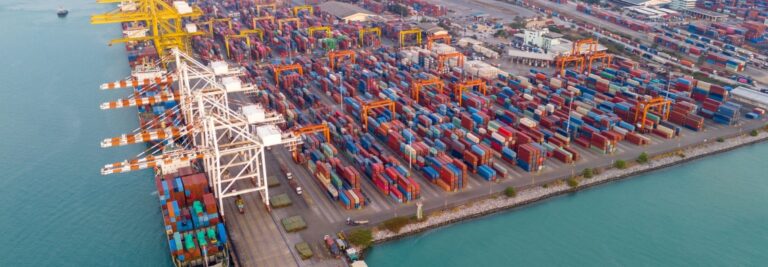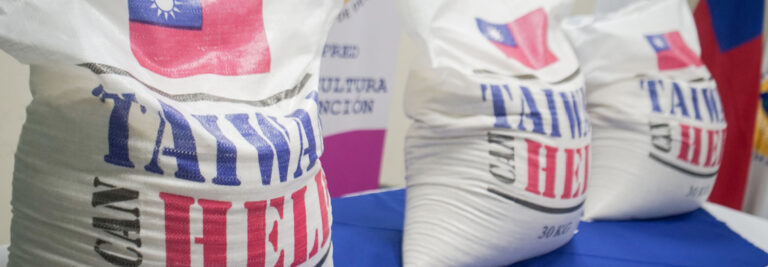Taiwan’s Intelligence Agency Confirms Some Local Media Co-opted by PRC
Against the backdrop of China’s intensifying pressure campaign against Taiwan since the island’s 2018 local elections, the country’s National Security Bureau (NSB)—the equivalent of the Central Intelligence Agency—recently confirmed that one of the sources of fake news and disinformation in Taiwan’s information space is local media co-opted by China. This is the first confirmation by an official intelligence source in Taiwan that China has essentially co-opted some local media and is spreading fake news through these mediums into the island’s information bloodstream.
At a legislative hearing on May 2 about the influence of Chinese fake news on Taiwan (中國假訊息對台灣之影響), Lieutenant General Vincent Chen (陳文凡), who serves as the NSB’s deputy director-general and was previously a senior adviser to the representative office in Washington DC, confirmed that these CCP-directed media outlets—including online and print media, social influencers, and Facebook fan pages—which Chen described as “fellow traveler media” (同路媒體) are actively spreading fake news and disinformation within the island. He described the problem of China buying social influencers and fan pages as particularly severe.
In response to a question by a DPP legislator, the deputy director-general also confirmed that opinion-editorials published by some local medias were first being sent to Beijing for approval. A summary report provided by the NSB to the Legislative Yuan reportedly stated: “Through the specific content and direction of Chinese media in Taiwan or fellow traveler media, they engage in disseminating controversial messages that divide the hearts of the Taiwanese people and encourage other media to circulate the reporting.” More alarming is that the NSB assessed that “some of the media’s propaganda content, reporting methods, channels, and tone were the same as the mainland’s [sic] threatening rhetoric against Taiwan.”
The confirmation of CCP efforts to interfere in Taiwan’s democratic process through influence operations on the media by Taiwan’s intelligence agency corresponds with recent pronouncements by the American Institute in Taiwan (AIT) Chairman Ambassador Jim Moriarty, who on a recent visit to Taiwan to commemorate the 40th anniversary of the Taiwan Relations Act and the AIT, stated in unambiguous terms: “They’ve [China] obviously stepped up campaigns of disinformation and direct influence against Taiwan … I do worry greatly about attempts to influence Taiwan’s democratic processes and I believe many Taiwanese share that concern.” Moreover, in the most recent US Department of Defense’s 2019 China Military Power Report, the Office of the Secretary of Defense also confirmed:
China conducts influence operations against cultural institutions, media organizations, and the business, academic, and policy communities of the United States, other countries, and international institutions to achieve outcomes favorable to its security and military strategy objectives.
Despite these assessments, some Taiwanese legislators remain skeptical. For instance, at the legislative hearing, KMT legislator Lu Yui-ling (呂玉玲) accused the NSB of misleading the public and causing social instability, demanded that the NSB reveal the names of the media outlets, and suggested that by not doing so the NSB would be itself propagating fake news. The deputy director-general, however, stated there are no reasons to doubt the intelligence, refused to reveal the media outlets, and further claimed that it was not necessary at the moment to do so. According to some assessments, the NSB’s revelation of these efforts may be intended as a warning to those local media that the NSB is monitoring their activities.
The Taiwan intelligence agency’s assessment is consistent with a growing body of evidence indicating that China is indeed interfering in Taiwan’s democratic process, especially following last year’s local elections, through an increasingly sophisticated and complex information warfare campaigns that involve both party, civilian, and military assets.
The main point: Despite growing recognition about the threat of China’s influence operations in spreading fake news in Taiwan, some people remain skeptical that China is engaged in such activities. The threat is apparently becoming more sophisticated and complex.
Two Narratives of the May 4 Movement across the Taiwan Strait
On April 30, the General Secretary of the Chinese Communist Party (CCP) and President of the People’s Republic of China (PRC), Xi Jinping (習近平), celebrated the 100th anniversary of the New Culture Movement (新文化運動, also known as the May 4 Movement) with a rousing speech in the Great Hall of the People in Beijing by calling on Chinese youth to be more patriotic and adhere to Marxist principles. Underscoring the importance of the event, which was reportedly attended by more than 3,000 cadres and party associates, the top-echelon of the CCP were all in attendance: Li Keqiang, Li Zhanshu, Wang Yang, Zhao Leji, Han Zheng, Wang Qishan, with Wang Huning serving as chairman.
The May 4 Movement, which was ignited during a period of domestic, social, and political upheaval within China and by a rapid turn of international events at the end of World War I (1914-1918), was a mass student-led protest that marked a radical turn towards Marxism among Chinese youth and public intellectuals in 1919. Indeed, two founders of the CCP, Li Dazhao (李大釗) and Chen Duxiu (陳獨秀) were the leaders of the New Culture Movement. In his speech, the CCP general secretary extolled the virtues of the student protests while providing guidance on how he sees the role of Chinese youth movement in the “new era.” In particular, Xi emphasized how Chinese youth should uphold the leadership of the Chinese Communist Party, work with the people to achieve the goal of “two hundred years,” and realize the great rejuvenation of the Chinese nation and achieve the “Chinese Dream.”
As Chinese politics expert Willy Lam explained in the Global Taiwan Brief: “The Chinese Dream follows the timeline of the so-called ‘two one hundreds.’ By 2021, the centenary of the establishment of the CCP, Chinese society will have achieved a ‘moderate level of prosperity’ (小康水平). More significantly, what Xi and his Politburo colleagues call the ‘great rejuvenation of the Chinese nation’ (中華民族偉大復興) will be accomplished by 2049, the centenary of the establishment of the People’s Republic of China (PRC).”
While acknowledging the principles of the May 4 Movement as patriotism (愛國), progress (進步), democracy (民主), and science (科學), Xi held up patriotism as the most important virtue and repeatedly called upon Chinese youth to listen to and follow the CCP. In 1934, the ROC government in China under Chiang Kai-shek (蔣介石) initiated the “New Life Movement” (新生活運動) as an anti-Communist campaign during the Chinese Civil War to counter the New Culture Movement and restore Neo-Confucian social morality and ultimately unite China under the KMT ideology.
Across the Strait, in Taipei, at a conference hosted by Academia Sinica, scholars gathered on May 4 at the country’s premier research institution to assess the 100th anniversary of the May 4 Movement. At the conference entitled “The 100th Anniversary of the May 4 Movement,” (五四運動一百週年) scholars criticized Xi Jinping for distorting historical facts arbitrarily for political purposes.
Speaking at the event, the minister of Taiwan’s Mainland Affairs Council (MAC)—which is the cabinet-level agency in charge of implementing the government’s policies towards China—Chen Ming-tong (陳明通) stressed how the international environment has changed in the past 100 years with the introduction of Western thought into China. Today, the CCP is exporting the “China model” (中國模式), which has triggered concerns among democratic countries, and has continuously weakened the autonomy of civil society by clamping down on free thought. In essence, the CCP has long since departed from the path of the May 4 Movement.
The minister recalled how Cai Yuanpei (蔡元培), the president of the then-Peking University founder of the Academia Sinica, advocated the policy of “freedom of thought and compatibility.” The CCP has now redefined the May 4 Movement as the history of the Party’s struggle. Meanwhile, the spirit of free and open thoughts in academic institutions is being suppressed by the Beijing authorities, which are attempting to control Chinese youth by promoting the message “listen to the party, follow the party” (聽黨話、跟黨走).
The CCP under the leadership of Xi Jinping appears to be undertaking a significant reinterpretation of its history. It is not surprising that the May 4 Movement is being manipulated by this “historical nihilism.” Under Xi Jinping, the CCP’s whitewashing of history has been unprecedented. As captured in a study by a former senior intelligence analyst, when describing the episodes leading up to and in the aftermath of the CCP’s landmark adoption of the 1981 Resolution that established the Party’s official narrative on key events in the Party’s history. In that report, Robert Suettinger described:
In April 2013, the Central Committee circulated a key document, entitled ‘Communiqué on the Current State of the Ideological Sphere,’ sometimes referred to as ‘Document Number 9.’ The communiqué specified that in order to communicate General Secretary Xi Jinping’s powerful and positive ideas (e.g. the ‘China Dream’) better, Chinese media should avoid covering Western philosophical and political concepts, including ‘universal values,’ constitutional democracy, a free press, and so on. Among the seven topics to be avoided, the communiqué included ‘historical nihilism’ (lishi xuwu zhuyi 历史虚无主义), which it defined, inter alia, as ‘rejecting the accepted conclusions on historical events and figures, disparaging our Revolutionary precursors, and vilifying the Party’s leaders.’
At the 100th anniversary speech, the CCP’s spiritual and propaganda czar, Wang Huning, praised the historical significance of the May 4 Movement as students’ demonstration of patriotism and nationalism. The irony, of course, is that if students in China today were to assemble en masse to petition their government for “Mr. Science” and “Mr. Democracy,” the outcomes would not likely be the same. According to Chen Yi-shen (陳儀深), a scholar at Academia Sinica, while Xi manipulates patriotism to serve the CCP’s interests, “Taiwan, on the other hand, has succeeded in political modernization after the end of the Kuomintang’s decades-long authoritarian rule and the formation of the Democratic Progressive Party, which is where the spirit of the May 4 Movement is firmly rooted and has flourished.” It is in this light that US Vice President Mike Pence’s speech last October snaps into clear view when he said: “America will always believe Taiwan’s embrace of democracy shows a better path for all the Chinese people.”
The main point: The CCP is reinterpreting the May 4 Movement as a patriotic and nationalistic movement, but there is a very different interpretation across the Taiwan Strait.




